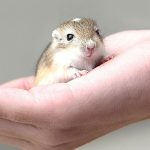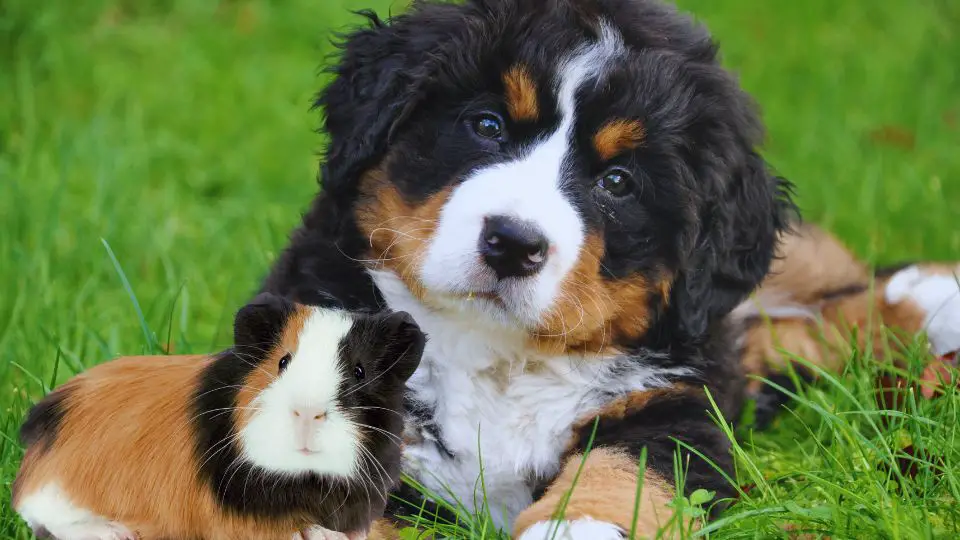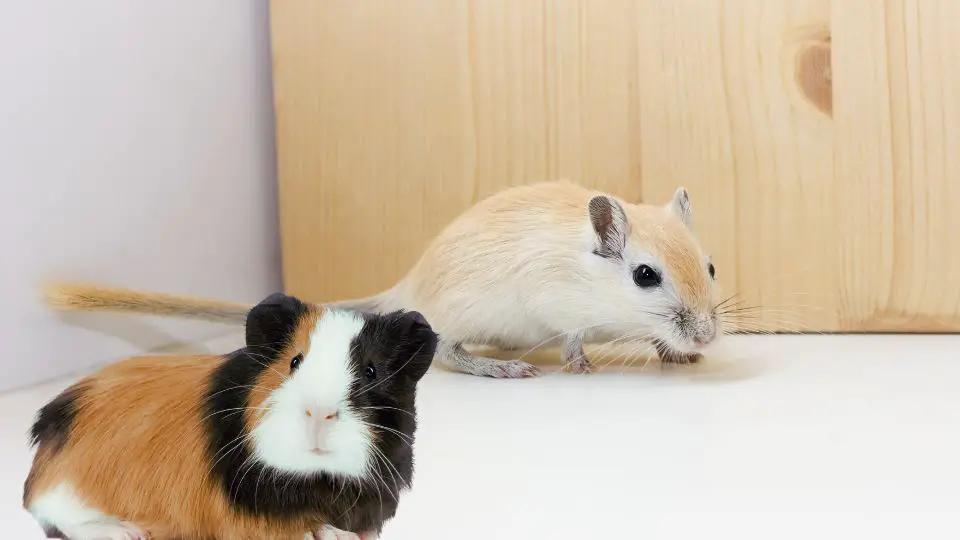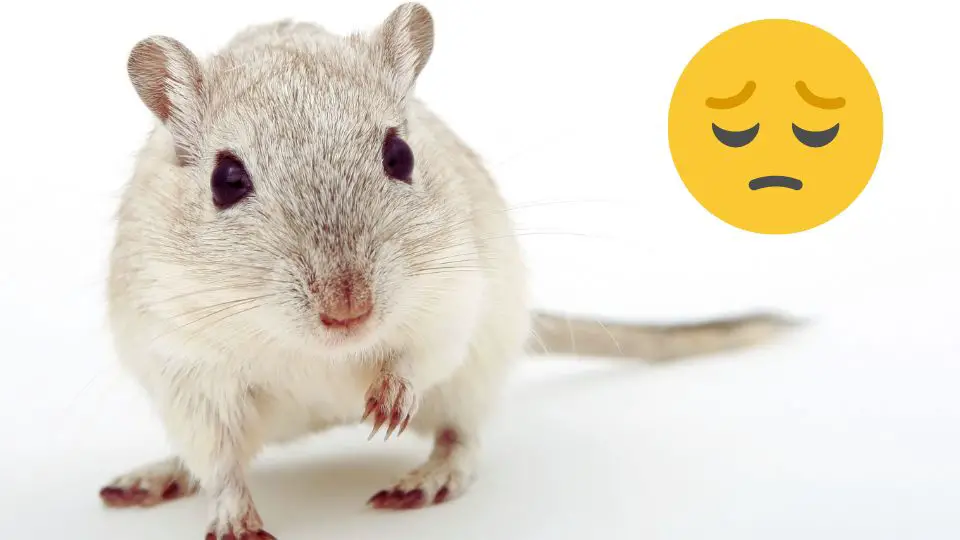Gerbils are a popular choice for small pet owners because of their cute appearance, friendly personalities, and relatively low maintenance. However, one question that many gerbil owners have is how long their furry little friends can be expected to live.
Generally, the lifespan of a gerbil is around 2 – 4 years, depending on their diet and overall health. If your gerbil lives in a safe, clean, and well-maintained environment with plenty of food, water, and exercise, they can live even longer.
Unfortunately, all good things must come to an end, and when it comes to gerbils, it’s important to be aware of the signs that could indicate your pet is nearing the end of its life. In this article, we will discuss the average lifespan of gerbils, the factors that can affect it, and the signs to look out for when it may be time to say goodbye.
How long does a gerbil live
The average lifespan of a gerbil is around 2–4 years. This can vary depending on a number of factors, such as genetics, diet, and living conditions. Gerbils that are kept in captivity and are well-cared for are likely to live longer than wild gerbils, which typically have a shorter lifespan.
Genetics play a significant role in determining the lifespan of gerbils. Some gerbil breeds may be more prone to certain health issues that can shorten their lifespan. For example, certain gerbil breeds may be more susceptible to tumors or other types of cancer. You may want to research the specific breed of gerbil you are considering as a pet, and to be aware of any potential health issues that may affect their lifespan.
Diet is another important factor that can influence the lifespan of gerbils. Gerbils that are fed a diet that is high in protein and low in fat are likely to live longer than those that are fed a diet that is high in fat and low in protein. We remind you that a gerbil diet should be balanced, with a good variety of foods such as seeds, fruits, vegetables, and hay.
Gerbils that are kept in a clean and spacious cage with plenty of toys and activities will live longer than those that are kept in a small, dirty cage with little to no stimulation. A gerbil should have at least a 2×2 ft cage and have a wheel, hideout, and other enrichment items.
Signs of Aging
When it comes to understanding the aging process in gerbils, you have to know what signs to look out for. As gerbils age, they may experience a variety of physical and behavioral changes that can indicate that they are getting older. Some of the most common signs of aging in gerbils include:
Graying Fur
One of the most obvious signs of aging in gerbils is a change in their fur color. As gerbils get older, their fur may start to turn gray or white, especially around the face and ears. This is a normal part of the aging process and is not a cause for concern.
Decreased Activity Level
Another common sign of aging in gerbils is a decrease in their activity level. As gerbils get older, they may become less active and may spend more time sleeping or resting. This is normal, but it’s important to make sure that your gerbil is not experiencing any pain or discomfort that could be causing them to become less active.
Weight Loss
Gerbils may lose weight as they get older, which can be a sign of aging or a health issue. Monitor your gerbil’s weight and do consult with a veterinarian if you notice that your gerbil is losing weight unexpectedly.
Change in Appetite
Gerbils may also experience a change in their appetite as they age. Some gerbils may become picky eaters, while others may eat more or less than usual.
Change in Behavior
Changes in the behavior of your little pet as it’s getting older should not be a surprise. Some gerbils may become more aggressive or less social, while others may become more withdrawn or less active.
Decrease of grooming
Gerbils are known for their grooming habits but as they age, their grooming routine may decrease, their fur may look unkempt, matted, or dirty.
In some cases, these signs may be caused by age-related health issues such as dental problems, arthritis, or tumors. These conditions may require veterinary care, so it’s important to consult with a veterinarian if you notice any of these signs in your gerbil.
Gerbil Care as they Age
As gerbils age, their care needs may change. You’ll have to adjust their care routine to ensure they remain comfortable and happy in their golden years.
- Diet: As gerbils age, their dietary needs can change. They may require a diet that is higher in protein and fat to support their bodies as they age. A diet that is high in fiber can also help prevent obesity and other age-related health issues. Consult with a veterinarian or a small animal nutritionist to ensure your gerbil’s diet is appropriate for their age.
- Exercise: Gerbils are naturally active animals, but as they age, they may become less active. It’s important to provide an appropriate amount of exercise for your aging gerbil to help maintain their overall health and well-being. Consider providing them with a larger cage or a bigger play area, as well as interactive toys that encourage them to move around.
- Veterinary Care: Regular check-ups with a veterinarian experienced in small animal care can help identify and address any age-related health issues early on. Your veterinarian can also provide advice on appropriate care for your aging gerbil, such as diet and exercise recommendations, as well as any necessary treatments or medications.
- Comfort: Gerbils can develop age-related issues that affect their comfort, such as arthritis or cataracts. Provide your small pet an environment that is comfortable, such as soft bedding, a warm and draft-free living space, and easy access to food and water.
Overall, aging gerbils require a different approach to care than younger gerbils. By understanding the changes that occur with age and making appropriate adjustments, you can ensure your aging gerbil continues to live a happy and comfortable life.
Knowing When it’s Time to Say Goodbye
Saying goodbye to a beloved pet is never easy, and it can be especially difficult when it comes to our small, furry friends. Gerbils, like all living creatures, have a finite lifespan, and it’s important to be aware of the signs that it may be time to say goodbye.
As gerbils age, their bodies, and minds will begin to change. They may become less active, lose weight, and even gray in their fur. These changes are normal and to be expected, but you have to monitor your gerbil’s health as they age. Regular visits to the veterinarian can help ensure that your gerbil is comfortable and happy in their golden years.
Despite our best efforts, there may come a time when it’s no longer possible to keep our gerbils comfortable and happy. At this point, you may want to make the difficult decision to euthanize. It’s never easy to say goodbye, but remember that we are doing what is best for our furry friend.
After the loss of any small pet, it’s important to take the time to grieve. Remember the good times and the joy they brought to your life. You can even create a memory box or photo album as a way to remember your little friend.
Remember that their passing is a natural part of the cycle of life, and they will always hold a special place in our hearts.







